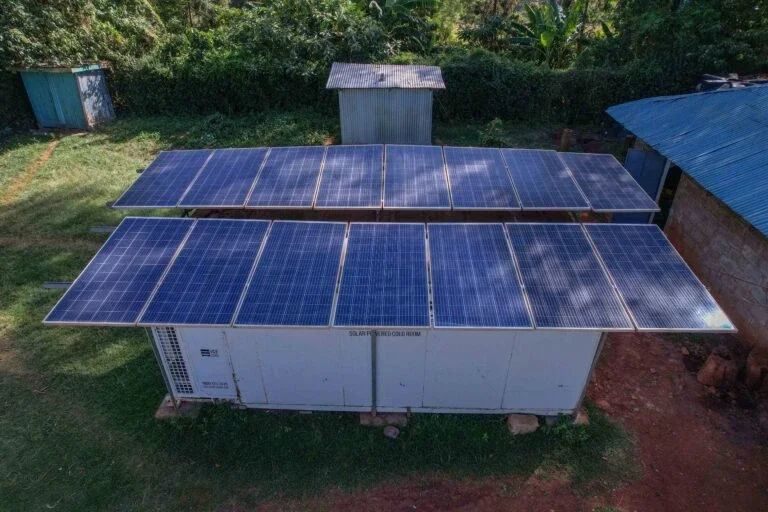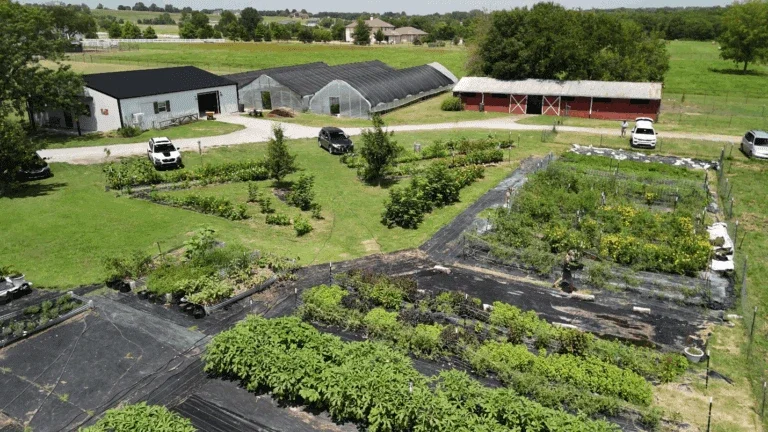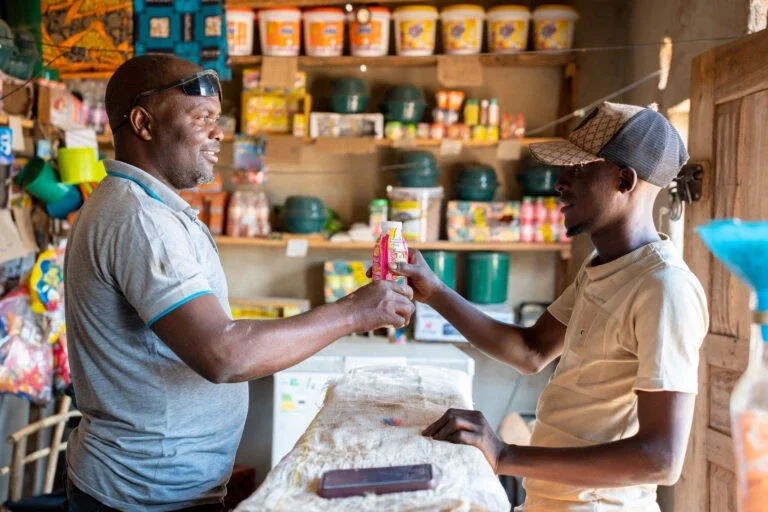In the middle of the Amazon rainforest, Dwayne Montaque’s phone is ringing.
“There’s always something going on,” The Rockefeller Foundation’s Vice President for Finance says apologetically. It’s a simple work call from The Rockefeller Foundation’s New York office, but as symbolism it’s powerful.
Some 3,000 miles away from the daily grind, Montaque and colleagues from across the foundation are in Amazonas state, Brazil, for a visit to the one of the many frontlines in the Foundation’s 5-year strategy to scale solutions that are good for people and planet. While they can’t fully disconnect from day-to-day operations back home, they are connecting with their projects at the heart of the Amazon, one of the world’s most consequential geographies for humanity’s well-being. This trip is a rare chance to see, as Montaque puts it, “our work in motion.”
In the dense humid forest, the team are hearing the scarred history of the Amazon, one of the planet’s largest climate stabilizers. From the rubber tapping boom-and-bust of the early 20th century to the illegal deforestation that continues apace today, this vast ecosystem has long been a battlefield of the inequitable relationship between industrial demands, local people and nature.
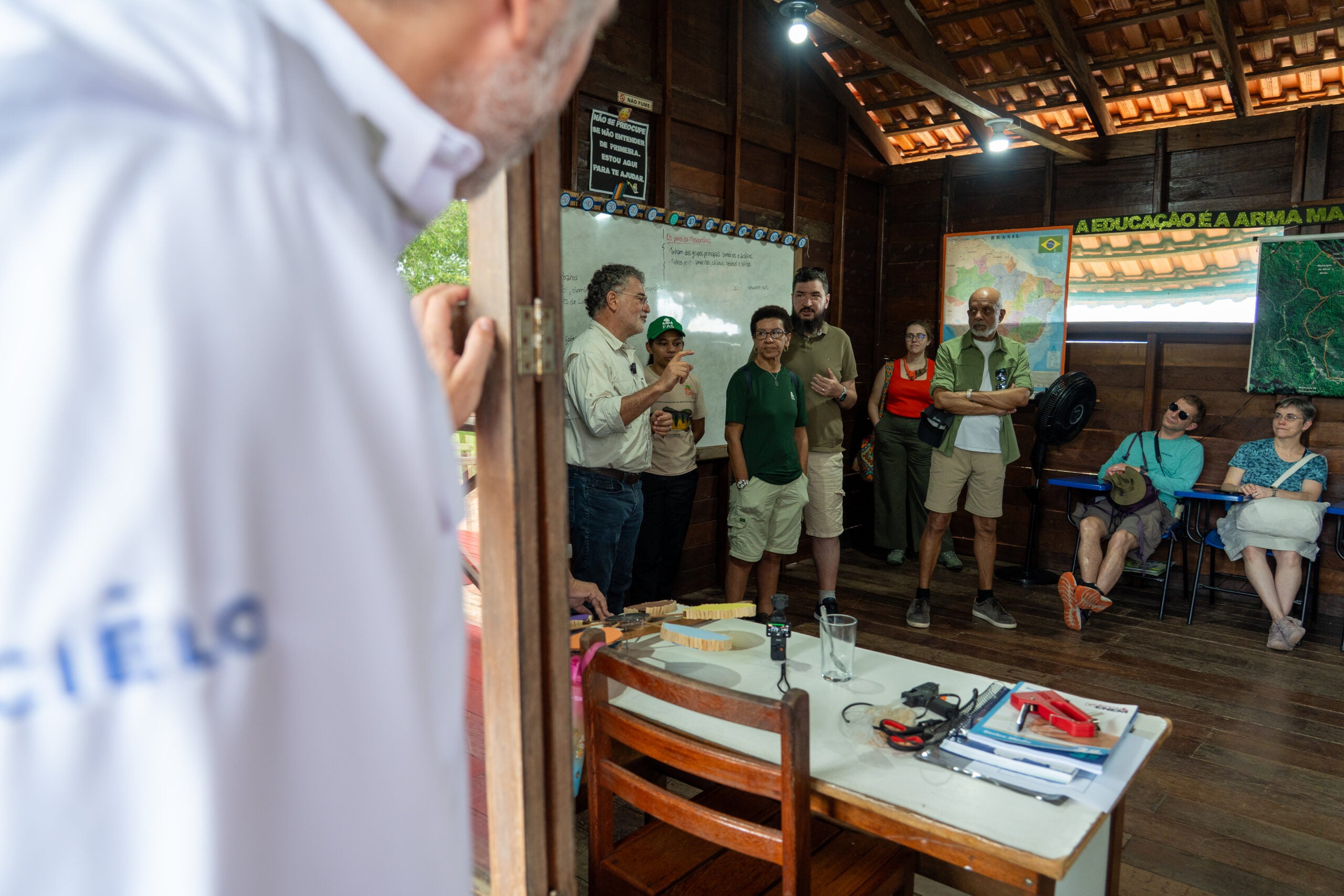
Virgilio Viana, General Superintendent of the Sustainable Amazon Foundation (FAS), shows The Rockefeller Foundation team a modern classroom in the remote river community of Tumbira. Solar energy helps keep this classroom powered and connected to education resources.
The island village of Tumbira in the Rio Negro archipelago is a model of the kind of community where The Rockefeller Foundation’s capacity to convene disparate entities — local residents, resource providers, community organizations, academics, politicians — can bear fruit.
The flooded forests that surround Tumbira render it accessible only by water. People, supplies, materials and equipment come in small boats that dock by the small jetty.
On the steep steps that visitors must climb to reach the community, friendly dogs wag their tails at the comings and goings of engineers, teachers, medics, clerics and volunteers, who represent a vital lifeline in this remote area.
In this section of the Amazon, like many other places around the world, people need better access to food, water, energy, healthcare and education.
Finding Answers in the Amazon
The Rockefeller Foundation traveled to the Amazon to learn from local climate leaders — marking a new chapter of investment and partnership across Latin America and the Caribbean.
Foundation for Amazon Sustainability (FAS) is one of many with which the Foundation, in this case through the Global Energy Alliance for People and Planet (GEAPP), works. Virgilio Viana and Valcléia Solidade, two of FAS’s sustainable specialists, work to ensure local communities such as Tumbira have a long-term plan and are not left behind, particularly in the urgent race for clean energy.
“Without energy you couldn’t have online classes at the village school, the health center or this lodge for sustainable eco-tourism,” says Solidade. “This is just one remote community, there are others that take 15 days to reach. Imagine the challenges involved.”
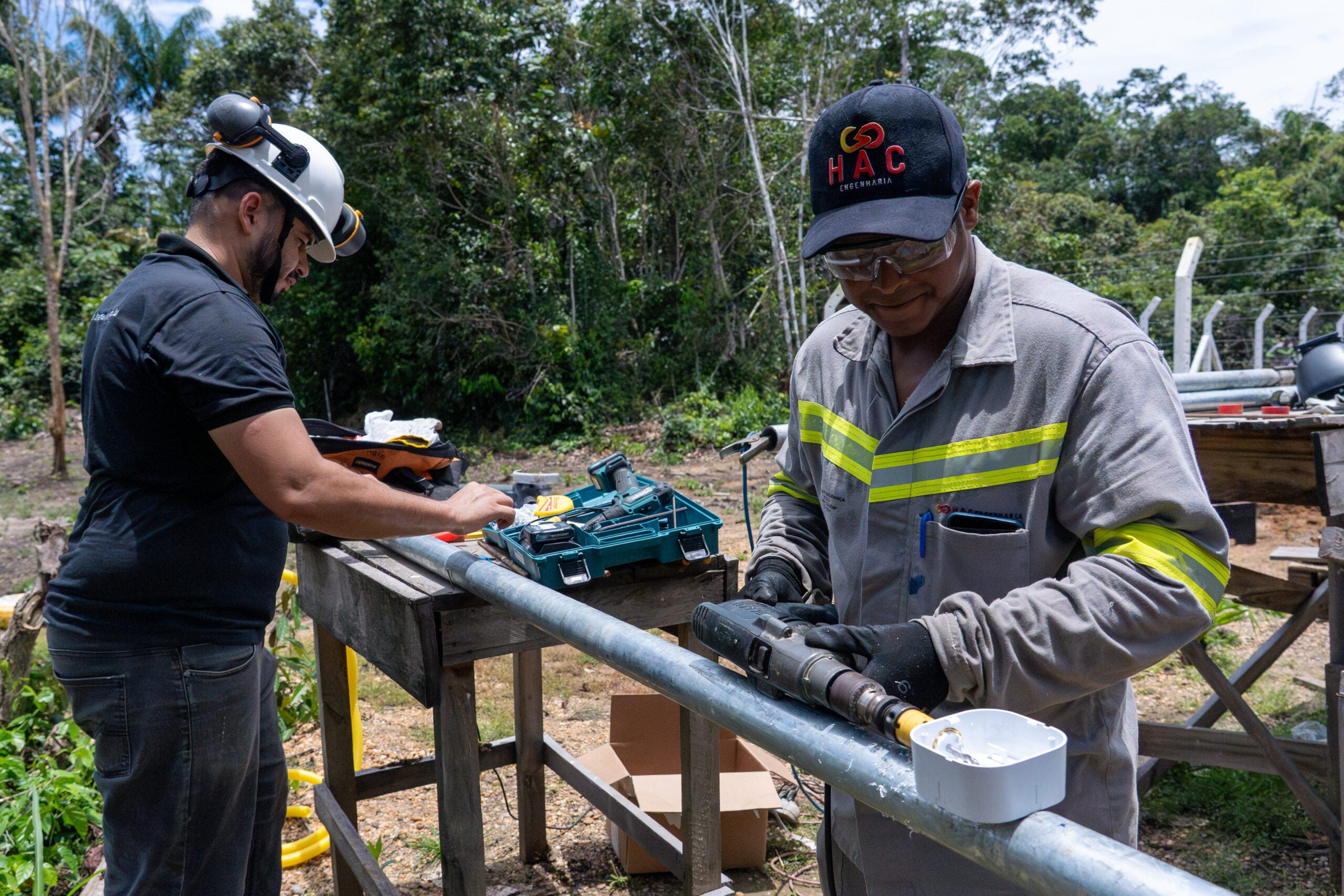
With the support of the Sustainable Amazon Foundation (FAS), the Tumbira community is expanding their solar energy capacity. Workers here are building a new solar mini-grid and battery storage system.
“To take care of the Amazon we have to take care of the people who take care of the rainforest,” says Viana. “Or they will sell logs to buy medicine and milk for their children.”
“This community is symbolic of what should be done for the whole Amazon. It has overcome poverty. It has drinking water, solar energy, sustainable fisheries and ice storage. Residents like Roberto here stopped illegal logging and started a family restaurant business. A week from today we will have our first ever class graduating with a university-level degree.”
Tumbira, one of the 582 communities FAS serves — 749 if deprived urban centers are included — would be left using diesel generators that add to the warming that is threatening life and livelihoods in the Amazon and elsewhere.
The Global Energy Alliance for People and Planet (GEAPP), of which the Foundation is a founding partners, is collaborating with FAS on electricity solutions.
In a plot of land where the village meets the jungle, the Foundation’s staff watched as engineers connect the field of solar panels to a power hub building containing sodium-ion storage batteries, which provide more energy for longer, at half the cost of lithium-ion batteries.
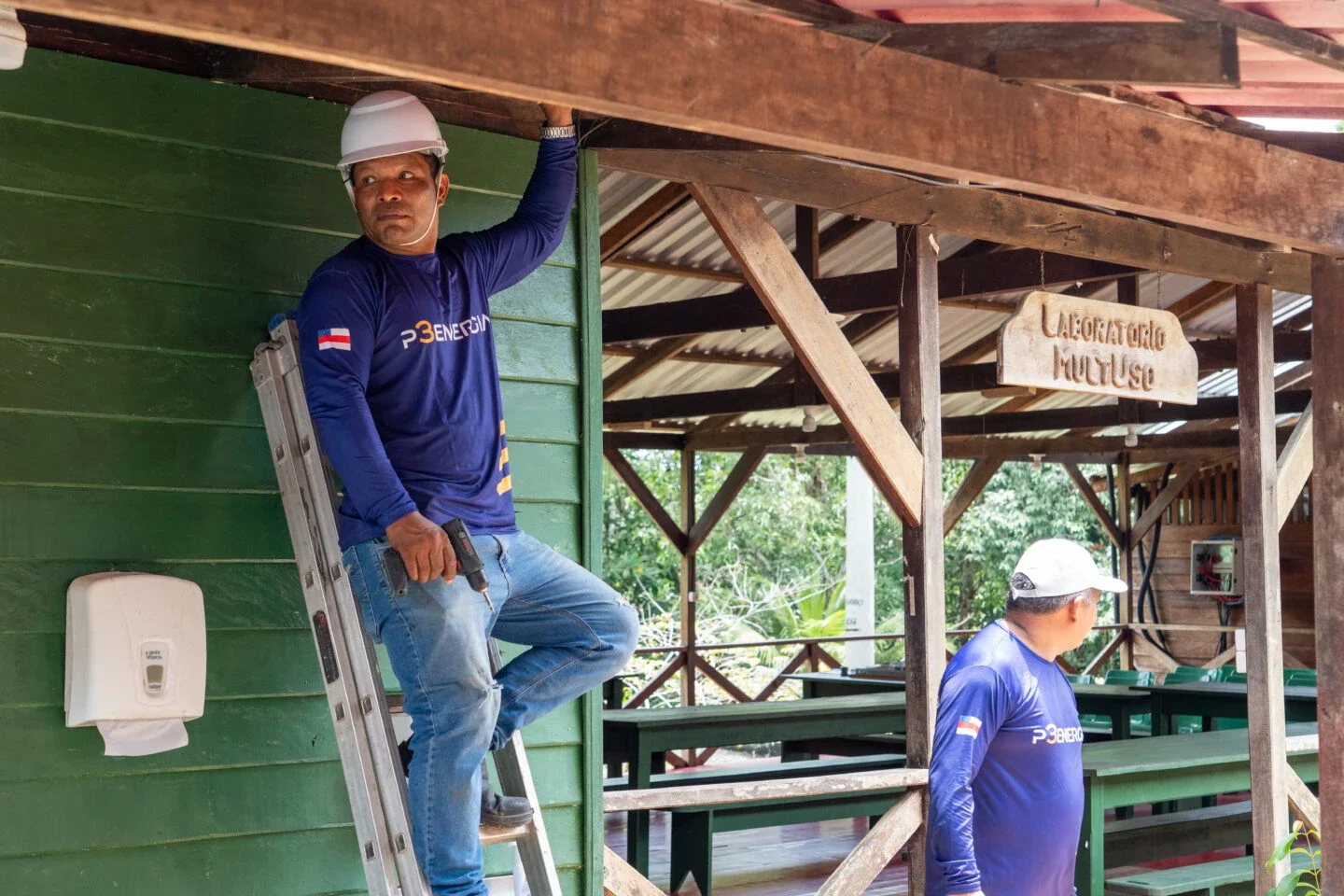 Workers from P3 Energia connect the Tumbira community to a new solar panel and battery system.
Workers from P3 Energia connect the Tumbira community to a new solar panel and battery system.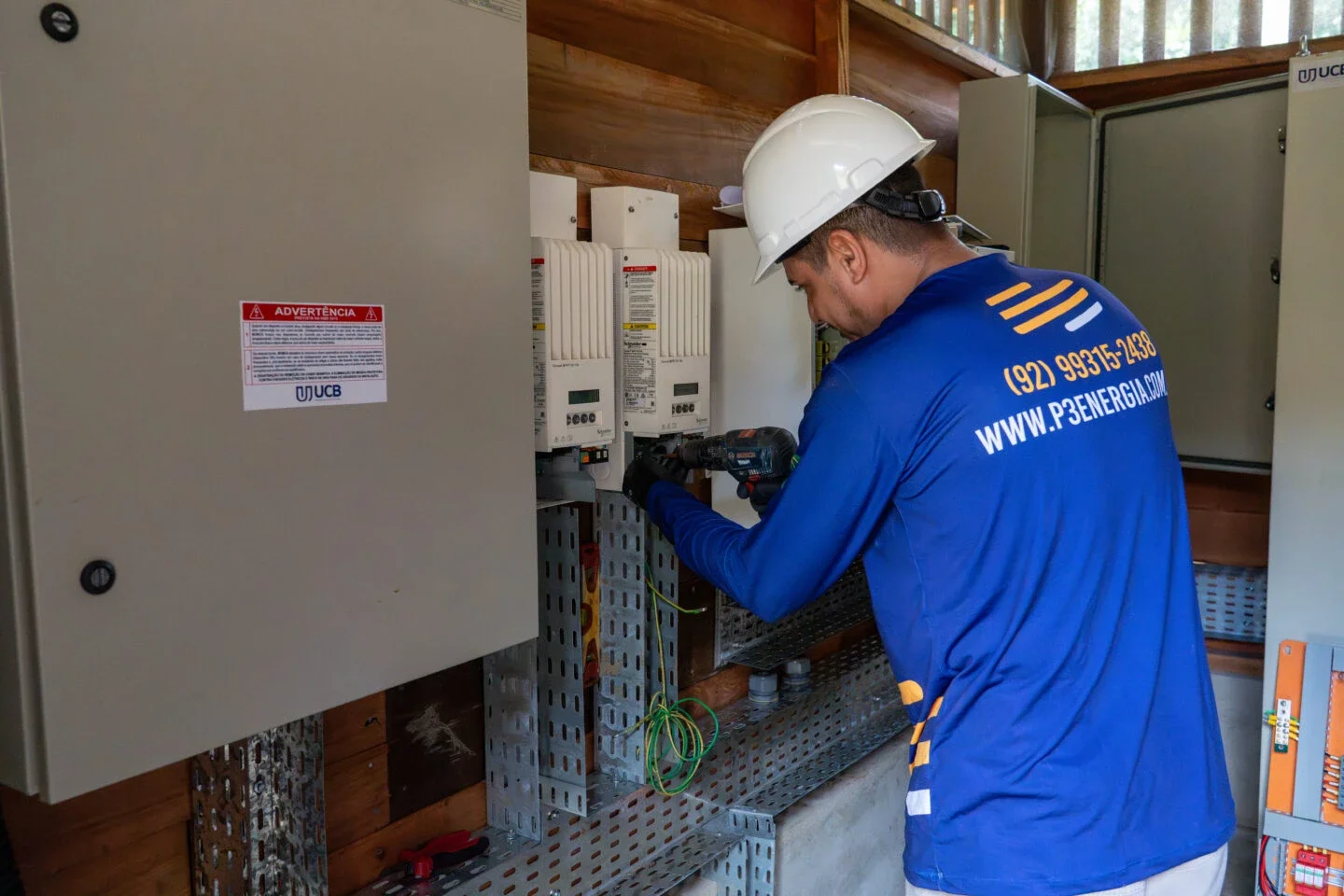 A worker from P3 Energia connects the Tumbira community to a new solar panel and battery system.
A worker from P3 Energia connects the Tumbira community to a new solar panel and battery system.
Local resident Willian Soares Mendes recalls what life was like before the project.
“Without solar, we relied on the electricity lines. When they failed, we used the generator. Sometimes we would be without power for days. Kids couldn’t go to school, doctors couldn’t turn on lights in the medical center, food would go bad because it couldn’t be refrigerated.”
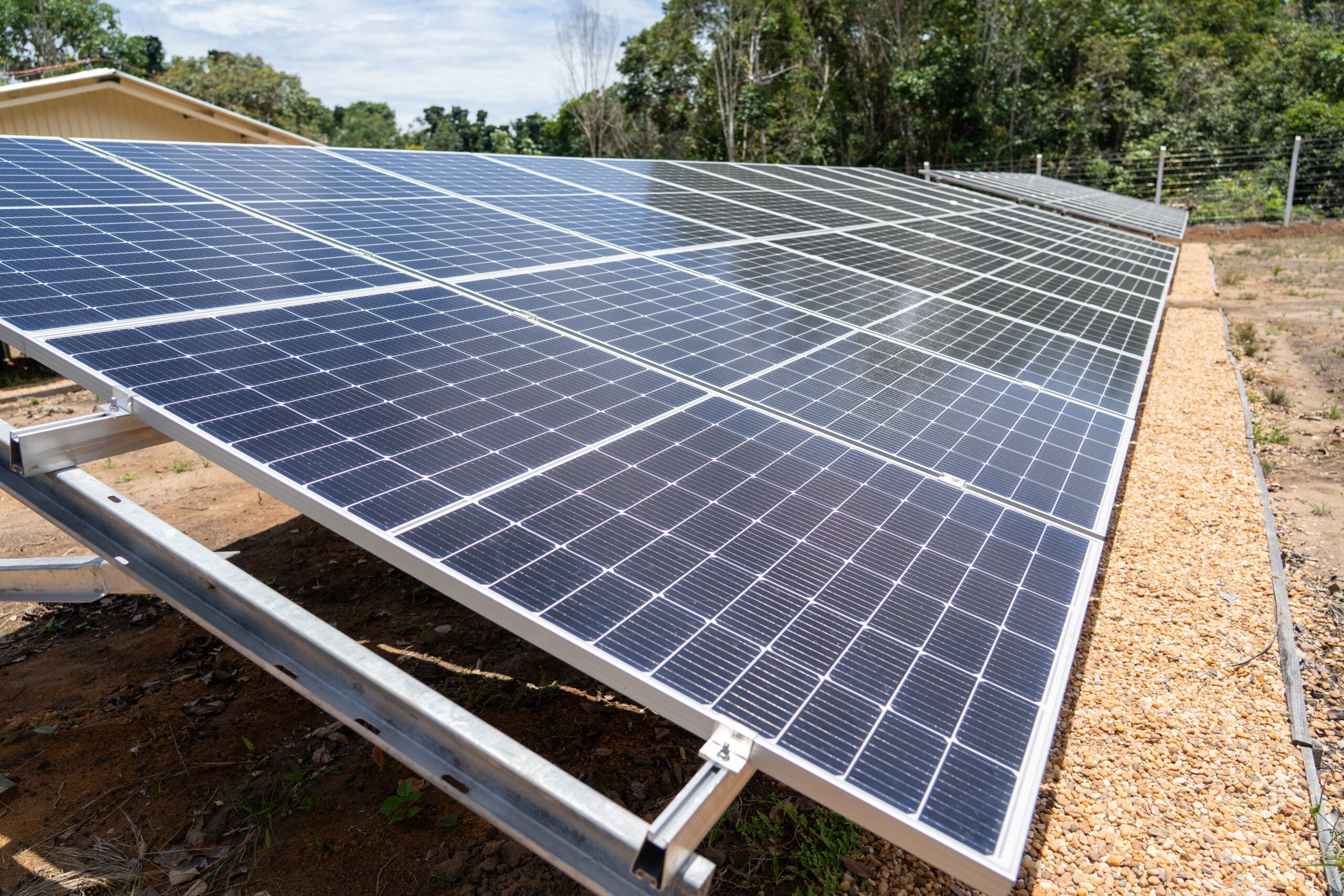
Today, the community benefits from at least 15 days of backed-up clean power from the 90 solar panels and 32 batteries producing up to 35 kWh.
“It was so cool to see the technologies I’ve worked with my whole career being installed in a community they suit so well, ” says Natalie Janzow, a manager on the Foundation’s Power and Climate team.
“It was an unexpected revelation to be in this otherworldly place and to see how the technology complements the space, promotes autonomy, and unlocks the growth that comes with broader energy access and lower-cost power.”
These sorts of programs can be replicated and scaled across the continent, as well as in Central America and the island nations of the Caribbean.
Making sustainable livelihoods pay is a vital part of the necessary work in the Amazon. Without viable incomes, the deforestation and mining industry can lure local people in.
“There’s a point at which losing 5% more of the Amazon doesn’t make the situation 5% worse but actually 1,000% worse,” says Kevin O’Neil, the Foundation’s Managing Director for New Frontiers. “Below a certain threshold of forest you break the water cycle, things dry out and it becomes irrecoverable.”
The trip has driven home to O’Neil, the Amazon’s practical importance beyond its carbon sink function. “If you want the port in Manaus to be navigable, you need the forest. Without the forest there is no rain and without the rain there is no river. The hope is that we can engage people who think their work isn’t climate-related and show them it really is.”
With Montaque’s phone now on silent, he returns to the discussion on the many ways trees are vital, especially in the Amazon. There’s the one that produces rubber to be vulcanized. The one that soothes the mosquito bite. The one that bears the fruits that monkeys eat and people buy and sell. The trees surrounding us help to protect every human on the planet. In the coming years, that symbiotic relationship between humans and trees will be of crucial importance. The words of FAS CEO Virgilio Viana will be vital too — “we must protect the people who protect the trees.”
